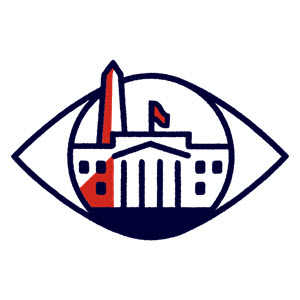New York Requires Advance Notice to Employees Regarding Electronic Monitoring

The law requires private employers that monitor electronic communications to provide advance written notice to all employees to inform them of the types of electronic monitoring that may occur.
On November 8, 2021, New York Governor Kathy Hochul signed into law AB 430/SB 2628 (CH 583), (the Act), in relation to electronic monitoring by employers. The law requires private employers that monitor electronic communications to provide advance written notice to all employees to inform them of the types of electronic monitoring that may occur.
The notice must be in writing, which may be in electronic form. The notice must also be acknowledged by the employee, in writing or electronically. Records of employee acknowledgements should be retained by the employer to demonstrate compliance with the Act.
The law provides that "Any employer who monitors or otherwise intercepts telephone conversations or transmissions, electronic mail or transmissions, or internet access or usage of or by an employee by any electronic device or system, including but not limited to the use of a computer, telephone, wire, radio, or electromagnetic, photoelectronic or photo-optical systems, shall give prior written notice upon hiring to all employees who are subject to electronic monitoring."
"Employer" means any individual, corporation, partnership, firm, or association with a place of business in the state. It shall not include the state or any political subdivision of the state.
Each employer must also post the notice of electronic monitoring in a conspicuous place, which is readily available for viewing by its employees who are subject to electronic monitoring.
The written notice must advise employees that "any and all telephone conversations or transmissions, electronic mail or transmissions, or internet access or usage by an employee by any electronic device or system, including but not limited to the use of a computer, telephone, wire, radio or electromagnetic, photoelectronic or photo-optical systems may be subject to monitoring at any and all times and by any lawful means."
The New York Attorney General will enforce these provisions. Employers found to be in violation can be subject to civil penalties of $500 for the first offense, $1,000 for the second offense and $3,000 for the third and each subsequent offense. It is not clear whether an offense might be considered separate with respect to each employee.
Sponsors of the legislation explained that notifying employees of computer monitoring protects employee privacy by making sure that employees understand the consequences of inappropriate internet activity. They noted that, according to a survey, violation of company policy and excessive personal use were the two main reasons for which employees were terminated for Internet misuse.
"By making guidelines of appropriate and inappropriate Internet use public, employees will be less likely to undermine company standards."
The Act provides that these provisions do not apply to processes that are designed to manage electronic mail or telephone voice mail or internet usage, that are not targeted to monitor or intercept the electronic mail or telephone voice mail or internet usage of a particular individual, and that are performed solely for computer system maintenance and/or protection.
The Act will take effect on May 6, 2022.
Generally, following recent state laws such as California's Consumer Privacy Act, many other states are considering legislation that may affect employers' rights and obligations in monitoring employee communications and activity. Employee data has generally been exempted from most elements of comprehensive privacy laws enacted to date. In California, despite the partial exemption for employee data, it is still a requirement to provide notice to employees of the types of data collected and the purposes for which it is collected, which could include monitoring, quality control, etc. Some privacy proposals could restrict employer monitoring practices.
ADP® will be following such initiatives in order to keep clients informed of relevant changes to applicable laws.
Providing notice of employer monitoring of employee communications and activities is already a best practice for many employers. Affected organizations should consult with appropriate legal counsel, as well as other departments, such as Human Resources.
ADP Compliance Resources
ADP maintains a staff of dedicated professionals who carefully monitor federal and state legislative and regulatory measures affecting employment-related human resource, payroll, tax and benefits administration, and help ensure that ADP systems are updated as relevant laws evolve. For the latest on how federal and state tax law changes may impact your business, visit the ADP Eye on Washington Web page located at www.adp.com/regulatorynews.
ADP is committed to assisting businesses with increased compliance requirements resulting from rapidly evolving legislation. Our goal is to help minimize your administrative burden across the entire spectrum of employment-related payroll, tax, HR and benefits, so that you can focus on running your business. This information is provided as a courtesy to assist in your understanding of the impact of certain regulatory requirements and should not be construed as tax or legal advice. Such information is by nature subject to revision and may not be the most current information available. ADP encourages readers to consult with appropriate legal and/or tax advisors. Please be advised that calls to and from ADP may be monitored or recorded.
If you have any questions regarding our services, please call 855-466-0790.
ADP, Inc.
One ADP Boulevard, Roseland, NJ 07068
adp.com
Updated on November 22, 2021



